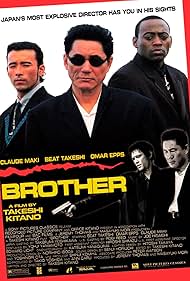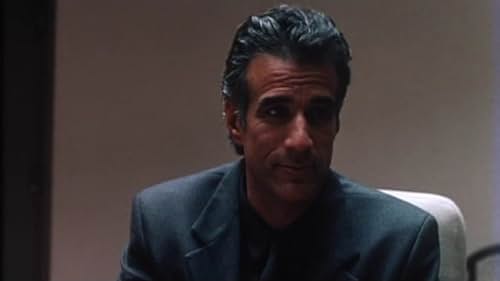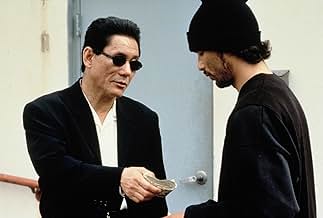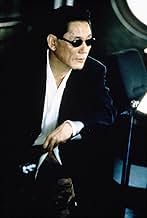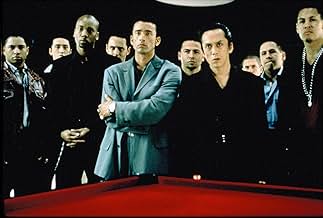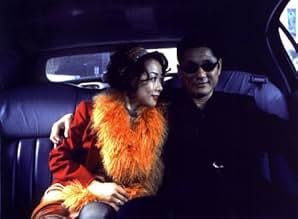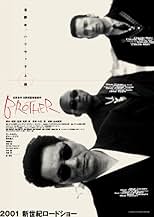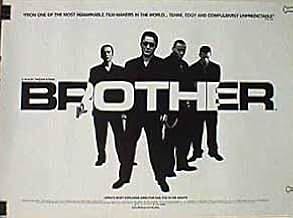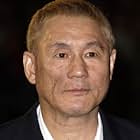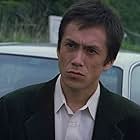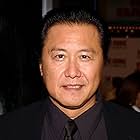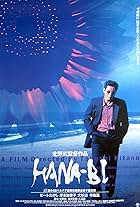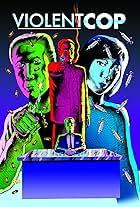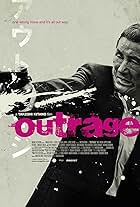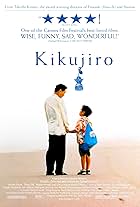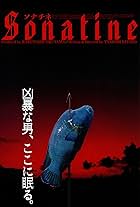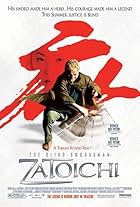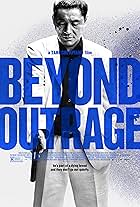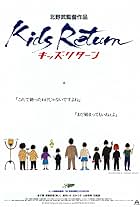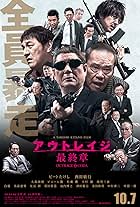A Japanese gangster is exiled to Los Angeles where his brother lives with a small but respectable multi-racial gang, who he inspires to expand their influence.A Japanese gangster is exiled to Los Angeles where his brother lives with a small but respectable multi-racial gang, who he inspires to expand their influence.A Japanese gangster is exiled to Los Angeles where his brother lives with a small but respectable multi-racial gang, who he inspires to expand their influence.
- Awards
- 1 win & 1 nomination total
Takeshi Kitano
- Aniki Yamamoto
- (as 'Beat' Takeshi)
Tatyana Ali
- Latifa
- (as Tatyana M. Ali)
- Director
- Writer
- All cast & crew
- Production, box office & more at IMDbPro
Storyline
Did you know
- TriviaThis was Takeshi Kitano's only American film he ever made. In an interview, Kitano said that he did not like the final result of Brother and that he regretted his "Hollywood adventure", which was supposed to bring him a wider audience. As a result, Kitano said that he had no intention of filming outside Japan again.
- Quotes
Aniki Yamamoto: I understand "fucking Jap," asshole!
- Alternate versionsUS version was heavily cut for violence to be in accordance with MPAA demands for a "R" rating.
Featured review
This is the 4th Kitano film I've seen recently. It has most of the characteristics of the other films - the sudden, shocking violence, the impassive silences, the same supporting actors, the obligatory seaside scene. But the shift to an American location weakens it, despite the excellent contributions of the US actors, especially Omar Epps.
But the core, unmissable qualities of a Kitano film remain. Takeshi Kitano must be the natural successor to Clint Eastwood as an anti-hero. Most of the stylised violence takes place off-screen, with a flash of humour, then the after-effects vividly on display. The sound-track from Joe Hisaishi matches the screen action perfectly, at times an aggressive supplement to the violence, at other times hauntingly peaceful.
The ending is the film's weakest part, as though Kitano pandered to imagined (or real) American requirements. The out-of-town setting and road movie elements fit uncomfortably with the rest of the film. But if this is the compromise needed to get Kitano to make more films out of Japan, it must be worthwhile.
But the core, unmissable qualities of a Kitano film remain. Takeshi Kitano must be the natural successor to Clint Eastwood as an anti-hero. Most of the stylised violence takes place off-screen, with a flash of humour, then the after-effects vividly on display. The sound-track from Joe Hisaishi matches the screen action perfectly, at times an aggressive supplement to the violence, at other times hauntingly peaceful.
The ending is the film's weakest part, as though Kitano pandered to imagined (or real) American requirements. The out-of-town setting and road movie elements fit uncomfortably with the rest of the film. But if this is the compromise needed to get Kitano to make more films out of Japan, it must be worthwhile.
Details
- Release date
- Countries of origin
- Languages
- Also known as
- Брат якудзи
- Filming locations
- Production companies
- See more company credits at IMDbPro
Box office
- Budget
- $10,000,000 (estimated)
- Gross US & Canada
- $450,594
- Opening weekend US & Canada
- $60,029
- Jul 22, 2001
- Gross worldwide
- $15,250,594
- Runtime1 hour 54 minutes
- Color
- Sound mix
- Aspect ratio
- 1.85 : 1
Contribute to this page
Suggest an edit or add missing content

